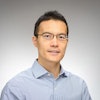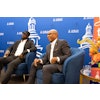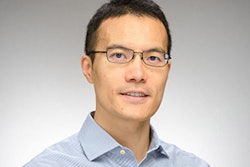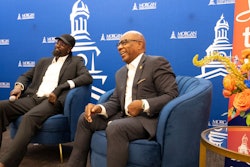 Kimberly Reyes, a third-year Ph.D. student in higher education at the University of Michigan, engaged in work at the Salzburg Global Seminar “Students at the Margins and the Institutions that Serve Them” which wrapped up yesterday in Salzburg, Austria. Photo Credit: Salzburg Global Seminar/Ela Grieshaber
Kimberly Reyes, a third-year Ph.D. student in higher education at the University of Michigan, engaged in work at the Salzburg Global Seminar “Students at the Margins and the Institutions that Serve Them” which wrapped up yesterday in Salzburg, Austria. Photo Credit: Salzburg Global Seminar/Ela Grieshaber
Reyes, 33, a third-year Ph.D. student in higher education at the University of Michigan’s Center for the Study of Higher and Postsecondary Education, was one of more than fifty participants who journeyed to this small European city to take part in the Salzburg Global Seminar “Students at the Margins and the Institutions that Serve Them: A Global Perspective.”
For Reyes, the weeklong experience of trading ideas with scholars concerned about the plight of disadvantaged students across the world has only strengthened her resolve to want to make a lasting impact with students in the United States.
“I think that I’m so fortunate to be able to come here at a time where I am thinking deeply about where I want to situate my scholarship,” says Reyes, who worked for several years as an admissions officer at Duke University — where she earned her undergraduate degree — before enrolling into Michigan’s doctoral program.
The seminar, convened by Drs. Marybeth Gasman, a professor at the Graduate School of Education at the University of Pennsylvania and director of Penn’s Center for Minority Serving Institutions, and Michael T. Nettles, senior vice president and the Edmund W. Gordon Chair for Policy Evaluation and Research at the Educational Testing Service, asked participants to find ways to identify challenges and potential solutions to working with students at the margins of their respective institutions.
By the end of the seminar, which included several panels, group work and informal socializing, scholars from various countries were pledging to find ways to work together despite geographic boundaries.
“We tried to get everyone to think [of the] big picture,” says Gasman, who is an expert on historically Black colleges and universities. “We want them to think that everything is possible.”















